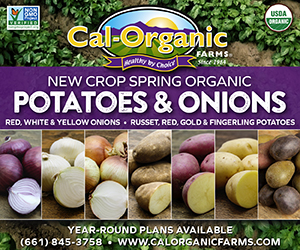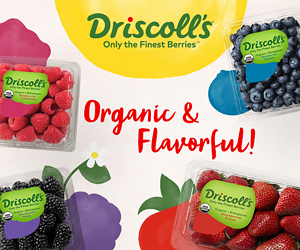Meeting organic supply chain challenges facing the organic industry in the near and far term will require innovative technologies, creative relationships and an acceptance that certain aspects of the landscape will not change anytime soon, according to a panel of experts at two educational seminars at the Organic Produce Summit, held last month in Monterey, California.
The pair of educational sessions on the organic supply chain----one from the growers’ perspective and the other from the retailers’ point of view --- outlined challenges and possible solutions for the organic fresh produce industry.
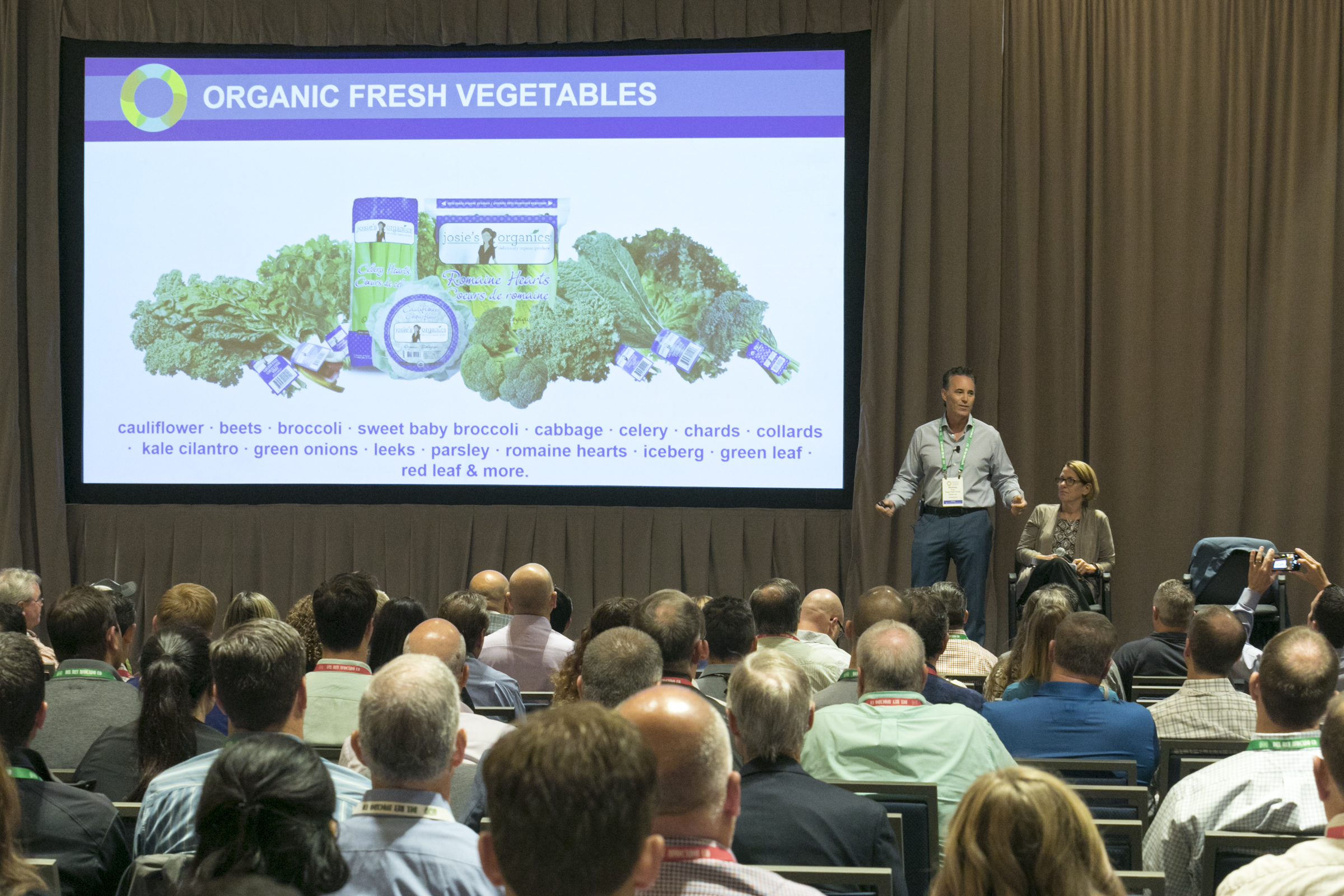 Rod Braga, President & CEO of Braga Fresh Family Farms presenting during an organic supply chain ed. session.
Rod Braga, President & CEO of Braga Fresh Family Farms presenting during an organic supply chain ed. session.
Braga Fresh Family Farms President and CEO Rod Braga began the discussion with an overview of his family’s entire into the organic fresh produce business. The Braga family started growing organic in the late 1980s, but their first organic field was wiped out by seven inches of rain. “That’s how we got into the organic business and it’s been slightly rockier since then, “Braga said, only half kidding. He said growing organic fruits and vegetables, harvesting, processing, packaging and moving product from point A to B to C --- while making sure it is all economically viable --- is not easy and market forces are getting more challenging all of the time.
Braga said labor issues are what’s keeping him up at night. The sentiment was echoed by fellow panelists, Will Feliz, CEO of Wawona Packing and Roger Pepperl, marketing director for Stemilt, who joined him on the growers’ supply chain panel. Finding enough people to fill the jobs is becoming increasingly difficult. Braga said, “Five years ago it was how we are going to get the fields harvested. Today it’s how are we going to get these things planted.”
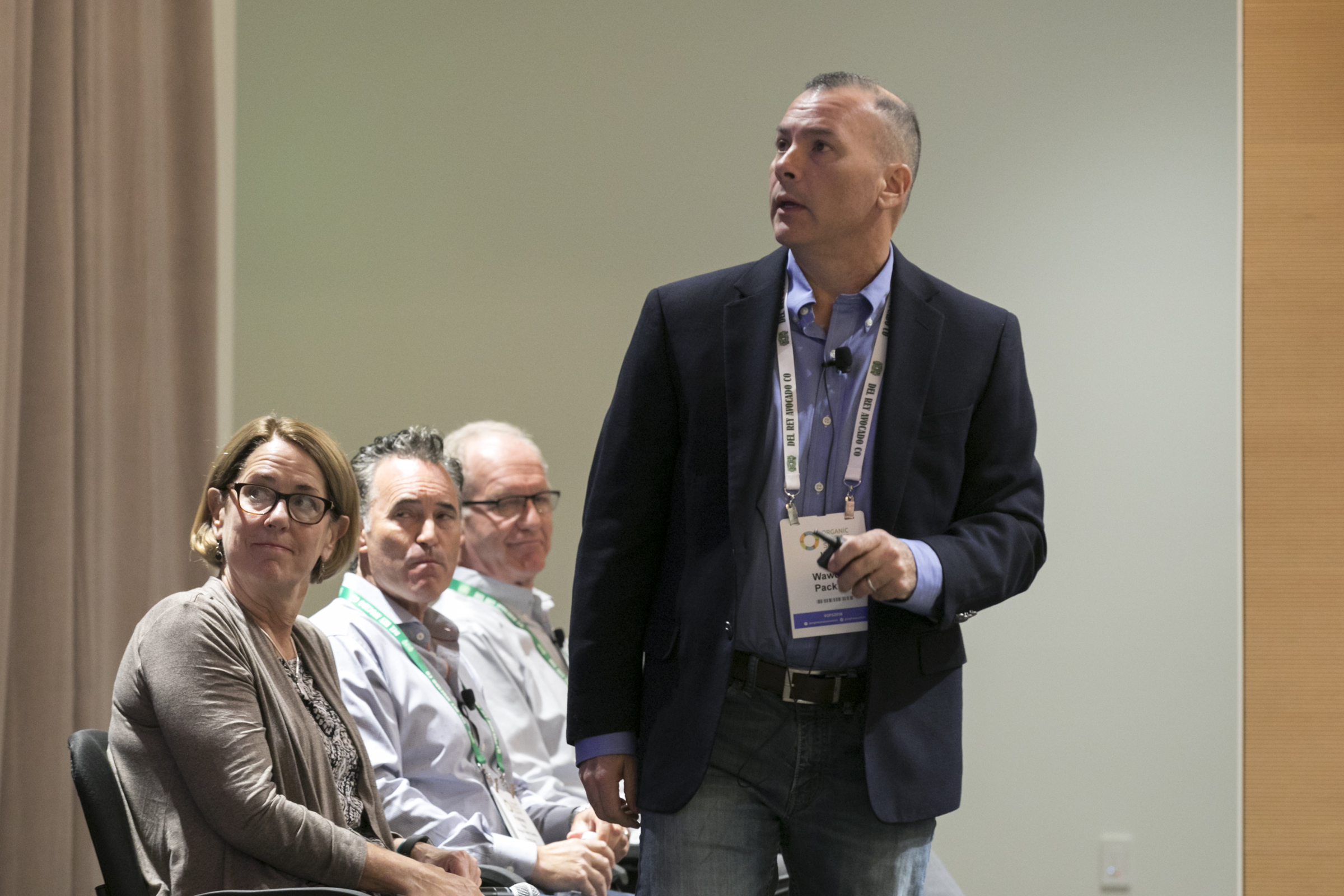 Will Feliz, CEO of Wawona Packing
Will Feliz, CEO of Wawona Packing
Labor and transportation costs dominated the conversation on the retail side as well.
Kenneth Reagan, vice president of sales and marketing for State Garden/Olivia’s Organics, said the $15/hour minimum wage that is coming in many states will be a huge factor for the industry going forward, and a shortage of truck drivers is complicating the transportation and freight equation.
Rodney Bonds, vice president of supply chain for Sprouts Markets echoed Reagan’s comments, “Freight makes up about 50 percent of our budget for supply chain and reportedly there is a shortage of 50,000 drivers across the United States right now and that number expected to grow to over 100,000 drivers over the next couple of years,” he said. To meet that challenge, Sprouts is looking to develop more regional distribution centers to cut down on the number of long hauls necessary, making the driving more attractive to a worker who wants to be home every night instead of the on the road for days at a time. Sprouts is also looking to be more attractive to carriers, by developing round trips for truckers and working on accuracy of forecasts so they know when demand spikes are coming.
Michael Castagnetto, vice president of global sourcing for Robinson Fresh agreed with his fellow panelists. “We manage it with surge plans and then figure out how we route trucks back into regions that are not popular right now. We work on the reverse engineering of the freight as opposed to freight itself,” he said. “The product has to be ready when you tell the truck it’s going to be ready. Technology solutions allow us to stay ahead of it.”
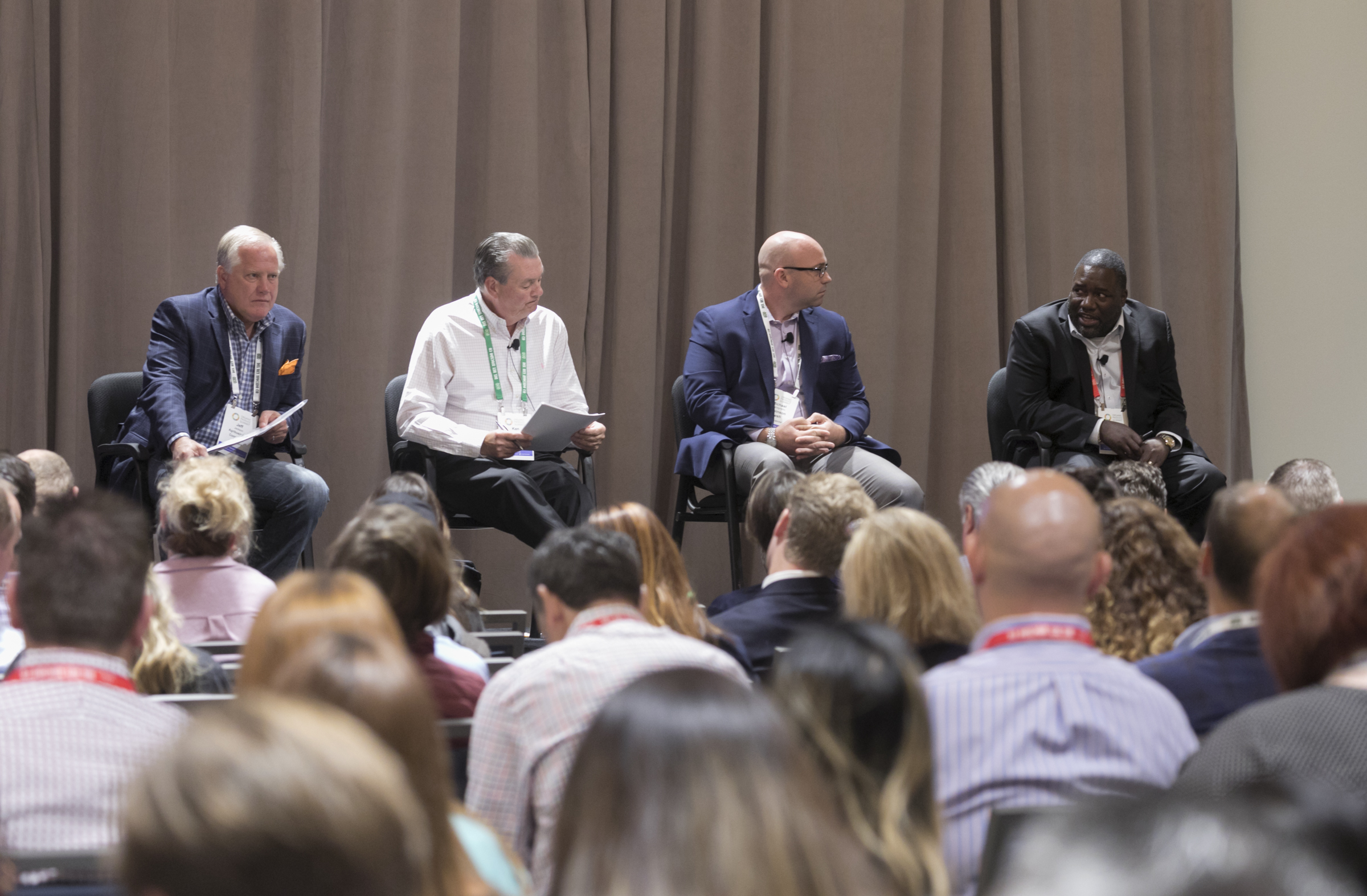 Organic supply chain panelists' discussing opportunities and challenges as it relates to post-harvest related issues.
Organic supply chain panelists' discussing opportunities and challenges as it relates to post-harvest related issues.
Working with retailers on the transportation piece of the puzzle is a priority for growers as well. Leaving no stone unturned, grower/shippers are looking at everything from technology to cultural practices to analytics to eliminate costs when possible. “You name it and we’re doing it to try to shave those last pennies out of our cost system so we can come in at an F.O.B that’s attractive. But It has to be collaborative effort,” said Wawona’s Feliz.
Looking to the future of the supply chain, all of the panelists see potential pitfalls and opportunities. Blockchain, for example, is seen as an intriguing, if not fully accepted, concept. Blockchain is a public register in which transactions are stored in a secure, verifiable and permanent way; with the data fully traceable.
While it could at some point revolutionize the industry from financial transactions to food safety, blockchain has a ways to go before it is widely accepted across all components of the supply chain.
“The opportunity with blockchain as far as security of information and transparency of information is incredible,” Castagnetto said. “The hurdle is the industry coming together as a community and accepting that we’re going to share the information across the platform. Until everyone buys in the idea will not be maximized. We do expect it to part of our business in the future. How fast is really going to be up to the industry.”
 The OPS supply chain educational sessions attracted a fully-packed audience.
The OPS supply chain educational sessions attracted a fully-packed audience.
The constant search for the best business model defines the organic supply chain challenge, but as consuming as that may be, Wawona’s Feliz urges growers and retailers to never lose sight of the goal.
“There are no golden arrows,” he says. “It’s just blocking and tackling every day. It’s lots of little stuff. We all have to make a reasonable return on investment, but we also have to make sure we’re doing everything we can to articulate a unified message about the power and importance of the products we provide to the world.”

